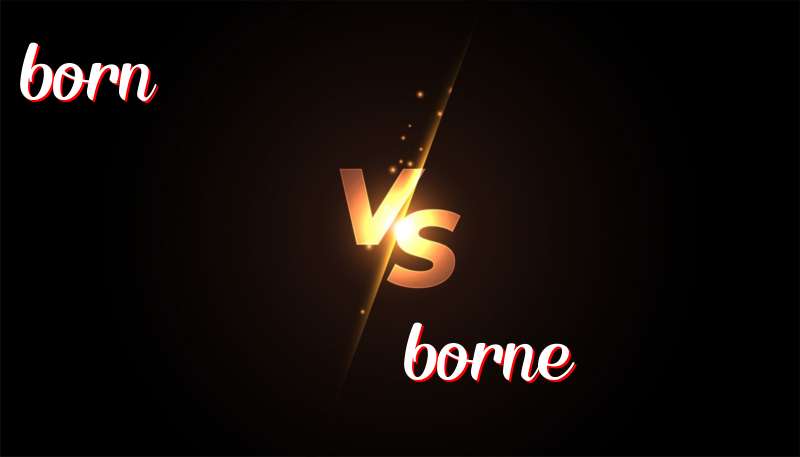Understanding the Difference Between Born and Borne
Born vs. Borne
The words “born” and “borne” look and sound alike, but they mean different things. Here, we will learn what each word means, their history, how to use them, and a simple trick to remember the difference.
History of “Born” and “Borne”
The word “born” comes from the Old English word “boren,” which means to bring into life or the world. It is often used when talking about being new to life. On the other hand, “borne” also comes from the Old English word “boren.” It is linked to carrying or holding something. While they share a root, their meanings have become different over time.
How to Use “Born”
“Born” is used when talking about the start of life. It describes when a person or an animal comes into the world.
- I was born in the city.
- She was born on a sunny day.
- The puppy was born yesterday.
- Babies are born in hospitals.
- The twins were born in March.
How to Use “Borne”
“Borne” is used when talking about carrying or holding something. It can describe something you take on or endure.
- The tree has borne many fruits.
- She has borne a lot of pain.
- The ship was borne by the strong waves.
- These are ideas borne from hard work.
- He has borne the burden for years.
Trick to Remember the Difference
To remember the difference, think of “born” as about birth and “borne” as about burden. If it is about coming into the world or something new, use “born”. If it is about carrying something or dealing with a challenge, use “borne”.
Summary
Born is used when talking about the start of life. It describes birth. Examples: “I was born”, “The baby was born”.
Borne is about carrying or enduring something. It relates to burdens or being supported. Examples: “The fruit was borne”, “He has borne the load”.
By remembering the link to birth for “born” and to burden for “borne”, you can use these words correctly in sentences.

Leave a Reply
You must be logged in to post a comment.